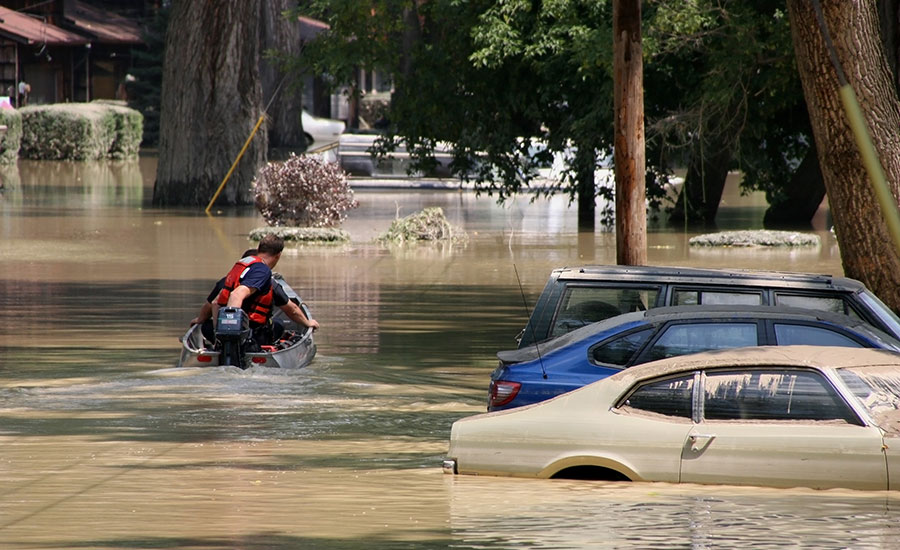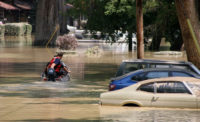For the third year in a row the potential of a natural disaster, such as a hurricane, tornado, flood or wildfire, is the type of threat that causes most concern among Americans.
Individual’s concern about natural disasters (33 percent) continues to exceed worry about terrorist attacks (15 percent), cyber-attacks (eight percent), environmental disasters (five percent), or disease outbreaks (13 percent).
The poll was conducted by international polling firm YouGov for Healthcare Ready, a Washington D.C.-based non-profit that works with the public and private sector to address healthcare resilience before, during and after disasters.
“These findings underscore the need to prioritize individual and community preparedness across the country in the face of threats from natural disasters, including the current hurricane season. Because we know that it’s not if, but when, a disaster will strike,” said Nicolette Louissaint, PhD, executive director of Healthcare Ready. “This annual poll provides insight that allows us to help the public and private health sectors better prepare and respond swiftly to a natural disaster, disease outbreak, or other emergency situations.”
Among the survey’s findings:
- Only 35 percent of Americans could list all their prescription details including dosage if they had to evacuate their homes without their medications or medical supplies, down from 2017 (38 percent).
- 25 percent of Americans reported they could only go two to three days without access to their medications or medical equipment before they began to experience negative health outcomes.
- More than half of Americans (53 percent) do not have any emergency preparation plans in place, yet 42 percent are concerned about an emergency happening.
- Americans are almost equally divided in their belief that a disaster could impact them in the next five years, with 51 percent perceiving it as it very or somewhat likely, and 49 percent believing it is not very or not at all likely.
“Given the tremendous devastation that Americans witnessed during last year’s natural disasters, including destructive hurricanes and wildfires, it’s increasingly important to understand how we as country view and prioritize preparedness,” continued Dr. Louissaint.
One of the most striking findings in the poll was in response to the question about funding for the agencies responsible for preparing a community for natural disasters or disease outbreaks. Only 32 percent of Americans feel the federal government has enough funding to prepare communities for disasters and aid in disaster recovery, which is down from previous years. Even fewer, 30 percent, think that states are sufficiently funded.
“All levels of government must be involved for a swift and effective response and have to be sufficiently resourced in order to do so. Local and federal officials must also work with communities before disaster strikes to help them prepare and ultimately recover from a disaster,” said Dr. Louissaint.


